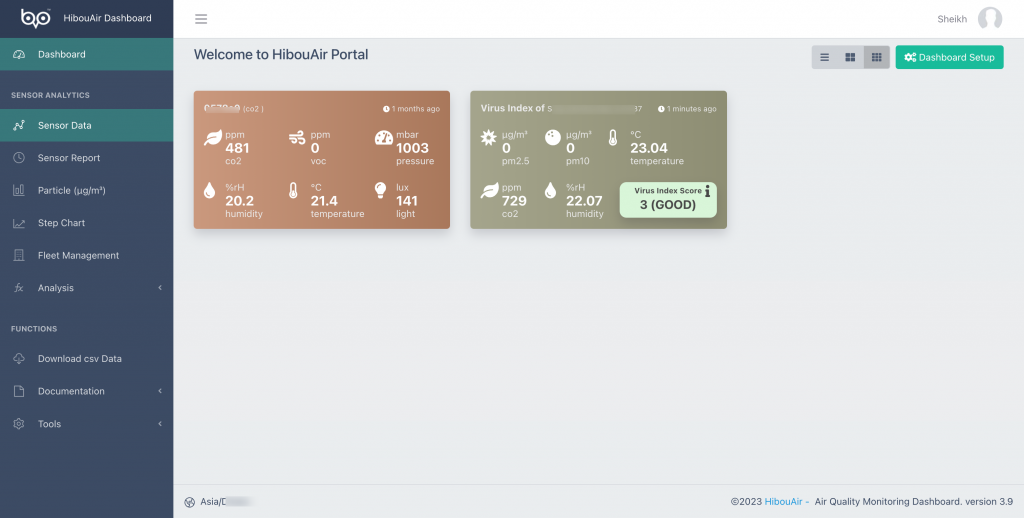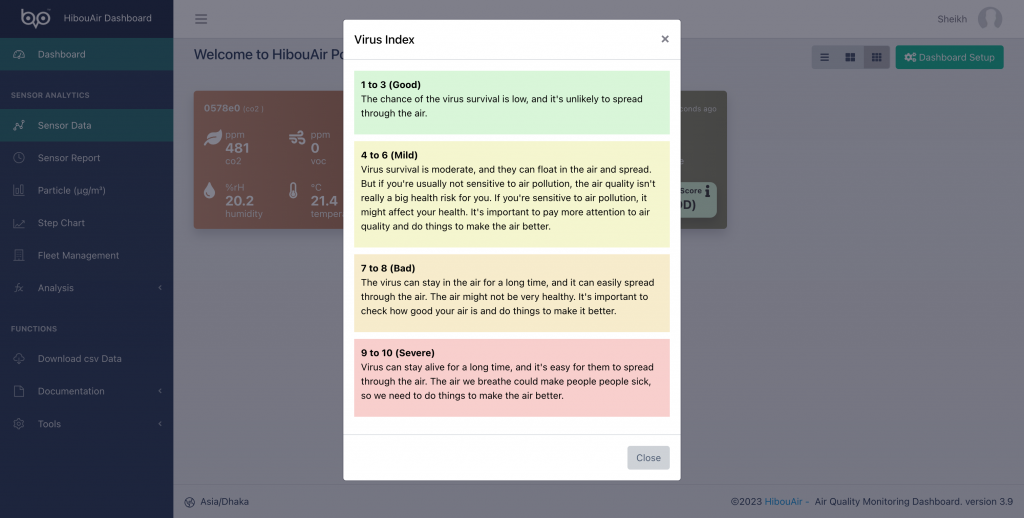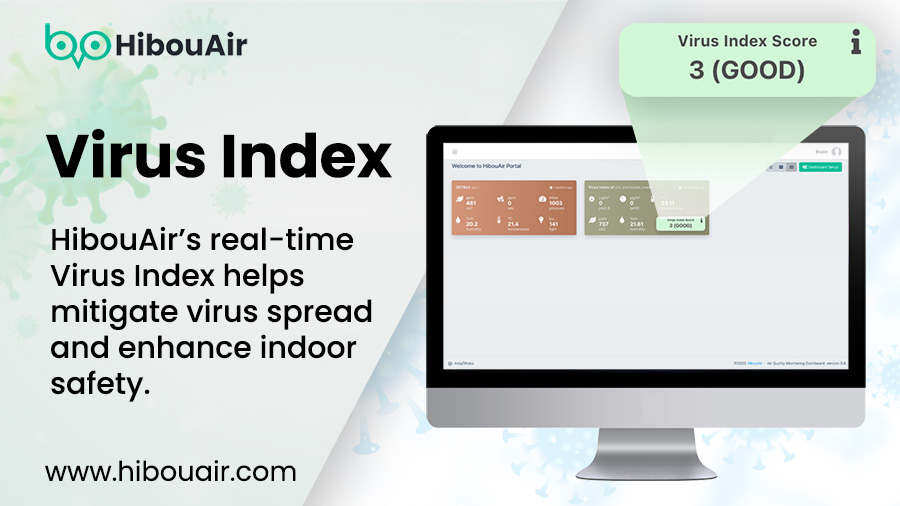HibouAir: Monitoring Air Quality to Mitigate Virus Spread and Enhance Indoor Safety
In the ongoing battle against communicable diseases such as COVID-19, understanding and monitoring indoor air quality have become important fact. Poor air quality not only poses health risks but can also contribute to the spread of viruses. In this context, HibouAir, an advanced air quality monitoring device, emerges as a crucial tool in assessing and reducing the risk of virus transmission. With its innovative Virus Index feature, HibouAir provides real-time data to helps individuals and businesses to create safer indoor environments.
HibouAir comprehensively monitors key air quality parameters to ensure a holistic understanding of the indoor environment. These include temperature, humidity, carbon dioxide levels, volatile organic compounds (VOCs), particulate matter, and air pressure. Each of these factors plays a pivotal role in creating a healthy indoor space and influencing the survival and transmission of viruses.
Virus Index Feature:
The standout feature of HibouAir is its Virus Index, a unique scoring system that assesses the risk of virus spreading based on real-time air quality data. The Index considers factors such as temperature, humidity, PM2.5 and PM1 levels, and carbon dioxide concentration to provide a score ranging from 1 to 10. This score categorizes the severity of virus survival and airborne spread, guiding users on the necessary actions to improve air quality.
Understanding the Virus Index Scores:
- Good (1-3): Low virus survival, unlikely airborne spread. The air quality poses minimal health risk.
- Mild (4-6): Virus survival is moderate, and airborne spread is possible. While posing little direct health risk to most people, sensitive individuals may experience effects. Attention to air quality improvement is recommended.
- Bad (7-8): Prolonged virus survival, likely airborne spread. The air quality poses a moderate health risk. Critical assessment and actions to improve air quality are necessary.
- Severe (9-10): High virus survival, likely airborne spread. The air quality affects most people, necessitating immediate actions to enhance air quality.
HibouAir considered the following factors as ideal ranges for Virus Index Parameters:
- Temperature: Maintaining an ideal range of 19°C to 24°C reduces virus survival rates, ensuring both comfort and safety indoors.
- Relative Humidity: Keeping humidity between 40% and 60% prevents droplets from becoming dry aerosols, thus reducing the longevity of virus particles in the air.
- Particulate Matter (PM2.5 and PM1): Maintaining levels below 15μg/m3 ensures that fine particles, a potential carrier of viruses, remain suspended for a shorter duration.
- Carbon Dioxide (CO2): An ideal range below 800ppm indicates proper ventilation, reducing the risk of airborne particle transmission.


HibouAir’s innovative Virus Index feature revolutionizes the way we approach indoor air quality, particularly in the context of virus spread. By providing real-time data and actionable insights, HibouAir enables users to take control of their indoor environments, minimizing the risk of virus transmission and creating safer, healthier spaces for all. As we continue to navigate the challenges of the modern world, investing in advanced air quality monitoring solutions like HibouAir becomes an essential step towards a more secure and resilient future.

